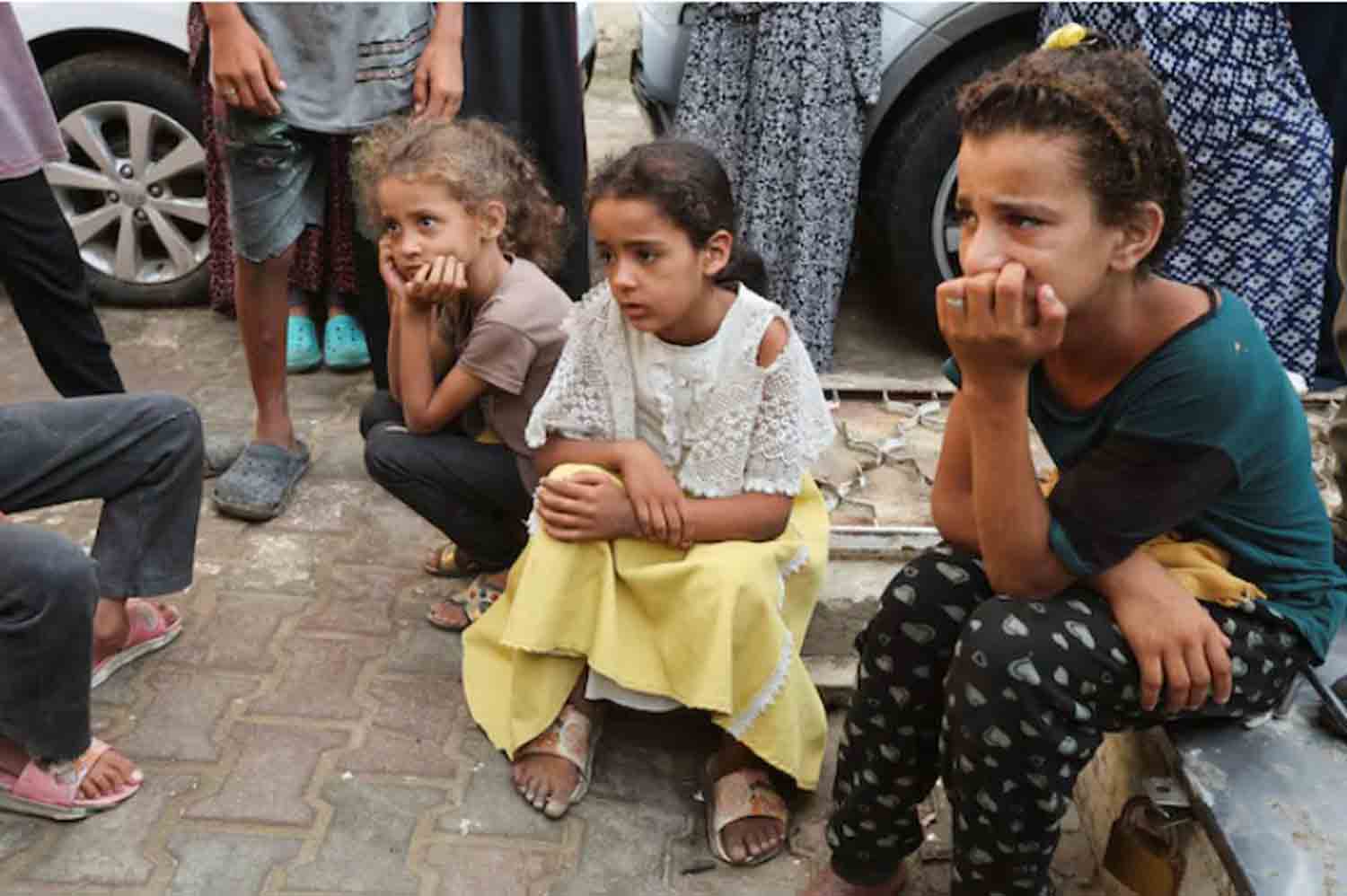Following a resolution to end over a year of conflict between Israel and Hezbollah in Lebanon, focus has shifted back to the heavily impacted Gaza Strip. However, expectations for a swift conclusion to the ongoing war there appear increasingly unlikely.
A ceasefire between Israel and Hezbollah came into effect early Wednesday morning, halting hostilities that had intensified significantly in recent months and overshadowed Israel’s concurrent conflict with Hamas militants in Gaza.
In announcing the agreement regarding Lebanon on Tuesday, U.S. President Joe Biden expressed his intention to renew efforts for a difficult resolution in Gaza, urging both Israel and Hamas to take advantage of the current situation.
Nevertheless, there are no indications that Israeli leaders intend to relax their stance towards Hamas, which instigated the conflict last year by launching attacks on southern Israel. Israeli ministers have made it clear that their objectives for Gaza differ markedly from those in Lebanon.
“Gaza will never pose a threat to the state of Israel again… We will achieve a decisive victory there. Lebanon is a different matter,” stated Israel’s Agriculture Minister Avi Dichter, who is part of the inner security cabinet and a former head of the Shin Bet intelligence agency.
“Are we at the beginning of the end of the Gaza campaign? Absolutely not. We still have much work ahead,” he remarked to a group of foreign journalists this week.
A total of 101 Israeli hostages are still being held in Gaza, and Israeli Prime Minister Benjamin Netanyahu has pledged to secure their return while also aiming to eliminate Hamas.
Efforts to negotiate between the two parties have been stagnant for an extended period, with each side attributing the deadlock to the other. On Wednesday, Hamas official Sami Abu Zuhri accused Israel of a lack of flexibility, asserting that his group remains open to reaching an agreement.
“We hope that this agreement (with Hezbollah) will create a pathway to a resolution that puts an end to the genocide against our people in Gaza,” he stated to Reuters.
Both Israel and the United States have criticized Hamas for not engaging in negotiations sincerely.
ONGOING CONFLICT
The conflict in Gaza has persisted far longer than anticipated. Over the course of 14 months, significant destruction has occurred, resulting in the deaths of 44,000 Palestinians, while Israeli forces continue to conduct daily operations throughout the coastal region in an effort to dismantle Hamas.
The announcement that Hezbollah has chosen to cease hostilities has left many residents of Gaza feeling despondent and overlooked, although some still cling to the hope that circumstances may improve.
“They say that if it rains in one area, it brings good fortune to another. We hope that after Lebanon, attention will shift to Gaza to bring an end to the conflict,” expressed Aya, 30, a displaced individual currently living with her family in a tent in central Gaza.
Faint signs of optimism have emerged in Egypt, which plays a pivotal role in facilitating dialogue between Israel and Hamas. Two Egyptian security officials reported that Israel has communicated to Cairo that if the ceasefire in Lebanon remains intact, they would resume efforts towards a deal concerning Gaza.
U.S. National Security Adviser Jake Sullivan indicated that President Biden would initiate a renewed effort for a Gaza ceasefire on Wednesday, engaging with Turkey, Qatar, Egypt, and other regional stakeholders.
However, with Donald Trump set to assume the U.S. presidency in January, he has expressed intentions to work towards ending the conflict but has not provided a specific strategy for achieving this. Given past experiences with Trump, who is a staunch ally of Israel, Palestinians remain skeptical.
DISASSOCIATING CONFLICTS
Israeli and U.S. officials have praised the Lebanese agreement for compelling Hezbollah, which, like Hamas, receives support from Iran, to separate itself from the Gaza situation.
Nonetheless, Ofer Shelah, a senior researcher at Tel Aviv University’s Institute for National Security Studies (INSS), cautioned that this separation may ultimately complicate efforts to halt the violence in Gaza.
“There will be no significant pressure on Israel regarding Gaza now,” Shelah told Reuters.
He further noted that it may not align with Prime Minister Netanyahu’s interests to pursue peace with Hamas in the near future, as it could destabilize his government, which is filled with hardliners—some of whom have criticized the Lebanon agreement and seek to take control of Gaza.
“I believe it serves his political agenda for the conflict to persist, as concluding the war in Gaza could genuinely jeopardize this coalition,” Shelah stated.
The families of the Israeli hostages voiced their frustration over Netanyahu’s decision to agree to a separate ceasefire in Lebanon. They suggested that Hezbollah, having endured significant losses over the past year, may have exerted influence on Hamas to release the hostages in exchange for halting the conflict.
Hamas is demanding the release of Palestinian prisoners in exchange for the remaining hostages taken during the October 7, 2023, attack, which resulted in approximately 1,200 fatalities in southern Israel. Additionally, Hamas has called for the withdrawal of Israeli forces from the enclave and firmly rejects any conditions requiring it to disarm or disband.
Highlighting the stark differences in their positions, Dichter stated that it is inconceivable for Hamas to have any future role in Gaza, nor does he foresee a quick withdrawal of the Israeli military from the area.
“We intend to maintain our presence in Gaza for an extended period,” he asserted.
Discover more from Defence Talks | Defense News Hub, Military Updates, Security Insights
Subscribe to get the latest posts sent to your email.





